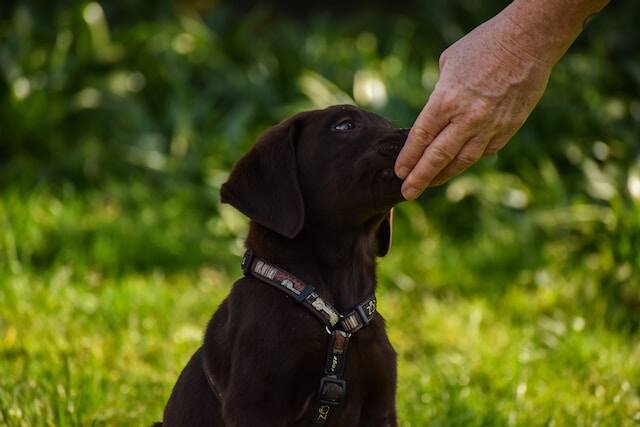If you’re a loving dog owner, you may be wondering if raspberries are a safe and healthy treat for your furry friend. The good news is raspberries are a nutritious and non-toxic fruit that can provide various health benefits to dogs. In this article, we’ll explore the safety of feeding dogs raspberries, their nutritional value, how to feed them, and much more. So, if you’re searching for answers to the question “can dogs eat raspberries?”, keep on reading.
Dogs need a healthy and balanced diet to maintain their overall well-being. Adding fruits to their diet can be an excellent way to supplement their nutritional needs. However, not all fruits are safe for dogs. So, let’s find out if raspberries are a safe fruit for your dog’s diet.
Key Takeaways
- Raspberries are safe for dogs when given in moderation.
- They contain vitamins, fiber, and antioxidants, benefiting canine health.
- Introduce raspberries slowly and watch for any negative reactions.
- Avoid feeding dogs large quantities to prevent digestive issues.

Can Dogs Eat Raspberries?
Yes, dogs can eat raspberries in moderation. Raspberries are safe for most dogs and offer health benefits due to their vitamins, fiber, and antioxidants. However, too many raspberries may cause digestive upset. Always introduce new foods gradually, and if your dog shows any adverse reactions, consult a vet promptly.
Are Raspberries Safe for Dogs?
Many dogs love fruits and berries, and raspberries are no exception. But before you feed your furry friend this sweet and tart fruit, you may be wondering if raspberries are safe for dogs to eat.
The good news is that raspberries are not toxic to dogs and can even be a healthy addition to their diet. Raspberries are rich in fiber, antioxidants, and other essential nutrients that can support your dog’s overall health and well-being.
However, there are some precautions pet owners should take when feeding their dogs raspberries. While the fruit itself is safe, there are potential risks to be aware of. For example, the small size and round shape of raspberries can be a choking hazard for some dogs, particularly small breeds.
Additionally, some dogs may be allergic to raspberries or other berries. Signs of an allergic reaction can include itching, swelling, vomiting, and diarrhea. If you notice any of these symptoms after feeding your dog raspberries, stop immediately and consult with your veterinarian.
The Nutritional Value of Raspberries for Dogs
Raspberries are not only non-toxic to dogs but also offer several nutritional benefits to their diet. These sweet and juicy berries are packed with essential vitamins, minerals, and antioxidants that promote good health and well-being.
| Nutritional component | Amount per 1 cup (123g) of raspberries* |
|---|---|
| Calories | 64 |
| Protein | 1.5g |
| Fat | 0.8g |
| Carbohydrates | 14.7g |
| Fiber | 8g |
| Vitamin C | 54% of Daily Value (DV) |
| Vitamin K | 12% of DV |
| Magnesium | 7% of DV |
*Source: USDA National Nutrient Database
The high fiber content of raspberries helps regulate digestion and prevent constipation in dogs. The antioxidants, including vitamin C and ellagic acid, may also boost their immune system and protect against cell damage that can cause diseases like cancer.
Raspberries are also low in calories and fat, making them an ideal treat for overweight or obese dogs. They can be used as a healthy substitute for commercial dog treats that are high in additives and preservatives.
Tip: It is important to note that raspberries should not be used as a meal replacement for dogs and should only be given as a supplement to their regular diet.

How to Feed Raspberries to Your Dog
If you’ve decided to add raspberries to your dog’s diet, it’s important to know the proper way to feed them. Follow these tips to ensure your dog is safe and happy:
Wash the Raspberries
Just like with any other fruit or vegetable, it’s important to wash raspberries thoroughly before feeding them to your dog. This will remove any dirt, pesticides, or other potential contaminants.
Remove the Stem
The stem of the raspberry can be a choking hazard for dogs, so it’s important to remove it before feeding the fruit to your pet. You can do this by gently pulling the stem off or using a paring knife.
Introduce Raspberries Slowly
If your dog has never had raspberries before, it’s best to introduce them slowly. Start with a small amount and monitor your dog for any signs of digestive upset or allergic reaction. If everything seems fine, you can gradually increase the amount over time.
Watch for Overfeeding
While raspberries are safe for dogs, they should still be considered a treat and not a main part of their diet. Too many raspberries can cause stomach upset or diarrhea, so it’s important to feed them in moderation. A general rule of thumb is to give your dog no more than one or two raspberries a day.
Feed Raspberries in Moderation
As with any new food, it’s important not to overdo it with raspberries. Too much of any new food can cause digestive issues for your dog, so it’s best to feed them in moderation. Consider raspberry treats as an occasional reward rather than a daily occurrence.
Precautions When Giving Dogs Raspberries
While raspberries are generally safe and healthy for dogs, there are a few precautions you should keep in mind to ensure your pet’s safety and enjoyment of the fruit.
- Wash raspberries thoroughly: Before feeding raspberries to your dog, make sure to wash them thoroughly to remove any potential pesticides or harmful bacteria that could cause digestive distress in your pet.
- Remove stem and leaves: Be sure to remove the stem and any leaves from the raspberry before giving it to your dog. These parts can pose a choking hazard or cause digestive issues if ingested.
- Avoid overfeeding: While raspberries are a healthy addition to your dog’s diet, they should not make up a significant portion of their meals. Too many raspberries can cause digestive upset or diarrhea in dogs, so be sure to feed them in moderation.
By following these simple precautions, you can safely incorporate raspberries into your dog’s diet and provide them with a tasty and nutritious treat.
Can Puppies Eat Raspberries?
Puppies can eat raspberries, but it’s important to introduce new foods slowly and in small amounts to avoid upset stomachs. As with adult dogs, raspberries can provide nutritional benefits to puppies and make a tasty treat.
However, puppies have smaller bodies and different dietary needs than adult dogs, so it’s important to be cautious about the amount of raspberries they consume. Start with a small piece of raspberry and observe your puppy’s reaction. If they show signs of an upset stomach, such as vomiting or diarrhea, stop feeding them raspberries immediately and consult with your veterinarian.
Raspberry Homemade Dog Treats
Raspberry homemade dog treats are a great way to incorporate this nutritious fruit into your dog’s diet. Not only do they provide health benefits, but they are also a delicious and easy alternative to store-bought treats. Here are two simple recipes to get you started:
Raspberry and Peanut Butter Treats
| Ingredients: | Instructions: |
|---|---|
| -1/4 cup fresh raspberries -1/4 cup natural peanut butter -1/2 cup rolled oats -1/4 cup water |
|
This recipe yields about 10-12 treats, depending on the size. Be sure to store any leftovers in an airtight container in the refrigerator for up to a week.
Banana and Raspberry Frozen Yogurt
| Ingredients: | Instructions: |
|---|---|
| -1 ripe banana -1/2 cup fresh raspberries -1/2 cup plain yogurt -1/4 cup water |
|
This recipe yields about 8-10 frozen treats, depending on the size of your mold. Feel free to adjust the amount of water to achieve the desired consistency. These treats can be stored in the freezer for up to a month.
Remember to always introduce new foods slowly to your dog, and consult with your veterinarian if you have any concerns about their diet. Homemade treats are a great way to control your dog’s portion sizes and ensure they are receiving high-quality ingredients.

Alternatives to Raspberries for Dogs
If your dog is not a fan of raspberries or if you want to mix up their fruit intake, there are several other options that are safe for dogs to eat. Here are some alternatives to raspberries:
| Fruits | Nutritional Benefits |
|---|---|
| Blueberries | High in antioxidants and fiber, great for cognitive function |
| Apples | High in fiber, boost immune system and dental health |
| Pears | High in antioxidants and fiber, support digestive health |
| Bananas | High in potassium and fiber, good for heart health and digestion |
Other safe options include mango, watermelon, and strawberries in moderation. Ensure that any fruit given to a dog is washed, peeled, and pitted if necessary, and always remove any seeds, stems, or pits that could pose a choking hazard.
Can Dogs Eat Raspberry Leaves?
Raspberries are a popular and healthy snack for dogs, but what about their leaves? While dogs can technically eat raspberry leaves, they are not recommended as a regular part of their diet.
Raspberry leaves are non-toxic to dogs, but they are not particularly nutritious either. In fact, they can be quite fibrous and difficult for dogs to digest. Additionally, some raspberry plants may be treated with pesticides or herbicides, which can be harmful to dogs if ingested.
If you still want to give your dog raspberry leaves as a treat, make sure to wash them thoroughly and remove any stems or other potential choking hazards. It’s also a good idea to introduce them slowly into your dog’s diet to ensure they don’t have any adverse reactions.
Overall, while raspberry leaves aren’t necessarily harmful to dogs, they don’t offer much nutritional value and may be difficult for dogs to digest. Stick to feeding your furry friend fresh raspberries instead and always consult with your veterinarian before introducing new foods into your dog’s diet.
Raspberry Allergies in Dogs
While raspberries are generally safe for dogs to consume, it is important to be aware of the possibility of allergic reactions. Some dogs may have an allergy to raspberries, which can result in symptoms such as itching, skin rashes, and gastrointestinal upset. If you notice any unusual symptoms after feeding your dog raspberries, it is important to stop and consult your veterinarian.
In rare cases, raspberry allergies in dogs can be serious and even life-threatening. Symptoms of a severe allergic reaction, known as anaphylaxis, include difficulty breathing, vomiting, and collapse. If you suspect your dog is experiencing anaphylaxis, seek emergency veterinary care immediately.
How Much Raspberries Can Dogs Eat?
It’s important to remember that raspberries should only be given to dogs in moderation, as they are still a treat and not a staple in their diet. Too many raspberries can cause digestive issues such as diarrhea or upset stomach.
The amount of raspberries a dog can eat depends on their size and weight. As a general rule, small dogs should be given no more than one or two raspberries per serving, while larger dogs can have up to five or six raspberries. It’s always best to start with a small amount and monitor your dog’s reaction before increasing the serving size.
If your dog has any health conditions, it’s important to consult with your veterinarian before adding raspberries or any new food to their diet.

Conclusion
Raspberries can be a tasty and nutritious treat for your furry friend, but responsible feeding is crucial. Offer them in small amounts and monitor your dog’s response. As with any new food, it’s best to consult your veterinarian to ensure it fits well with your dog’s diet and health needs.
FAQs about Feeding Raspberries to Dogs
Feeding your dog raspberries can be a healthy and enjoyable addition to their diet. However, it’s important to take certain precautions to ensure their safety and well-being. Here are some common questions and answers about feeding raspberries to dogs:
Can dogs eat frozen raspberries?
Yes, frozen raspberries are safe for dogs to eat. However, it’s important to let them thaw out before serving them to your pet. Otherwise, they could pose a choking hazard or upset their stomach.
Can dogs eat raspberry jam or jelly?
No, it’s not recommended to feed your dog raspberry jam or jelly. These products often contain added sugar, preservatives, and other ingredients that can be harmful to dogs. Stick to fresh or frozen raspberries instead.
What should I do if my dog eats too many raspberries?
While raspberries are generally safe for dogs to eat, consuming too many can lead to digestive issues like diarrhea or vomiting. If your pet eats too many raspberries, monitor them closely and make sure they have access to plenty of water and rest. If they show any concerning symptoms, contact your veterinarian.
Can dogs eat raspberry leaves?
Yes, raspberry leaves are safe for dogs to eat. In fact, they can provide some of the same health benefits as the fruit itself. However, be sure to wash the leaves thoroughly and remove any stems or prickly parts before feeding them to your pet.
What are some other dog-friendly fruits besides raspberries?
There are many other fruits that dogs can safely consume, including blueberries, strawberries, bananas, and apples. However, it’s important to research each fruit’s nutritional value and potential risks before introducing it to your pet’s diet.
How can I tell if my dog is allergic to raspberries?
Some signs of an allergic reaction in dogs include itching, redness or swelling of the skin, digestive issues, and respiratory problems. If you suspect your dog is having an allergic reaction to raspberries (or any food), contact your veterinarian right away.
How often can I feed raspberries to my dog?
The frequency at which you feed your dog raspberries will depend on their size, weight, and overall dietary needs. As a general rule, raspberries (and other treats) should only make up a small portion of your pet’s diet. Consult with your veterinarian to determine the appropriate feeding schedule for your dog.
By following these guidelines and consulting with your veterinarian, you can safely incorporate raspberries (and other fruits) into your dog’s diet, providing them with valuable nutrients and tasty treats.


